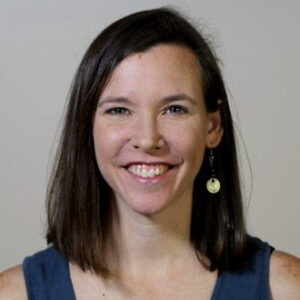
Embodiment, Geography, and Class in the Classroom
I was born and grew up in the hills of east Tennessee, in the Appalachian region of the United States. As a child, I didn’t realize that where I lived had a reputation in other parts of the country. I also didn’t know that I had an exceptionally strong Southern accent until I was in college. When I decided to pursue academia, I worried that my accent would lead others to think that I did not belong in graduate school. I began to attempt to erase my accent, especially during classes or when speaking to a professor. Before giving my very first paper at a conference, I practiced over and over again to be sure that I sounded “smart” and “professional.” It was becoming clear that, to many people, “Southern” and “smart” were not synonymous. When I moved to the “north” (New Jersey) for my doctoral studies, these fears increased. I worked to prove that I was smart and capable, which meant that I attempted to hide my accent, even though it wasn’t as strong as when I was younger. Even with all of my work and practice, it occasionally slipped through and inevitably someone would comment on it.
Through reading and reflection, I now realize this struggle with my accent was connected to my background and, further, my class. While many of my fellow students seemed to understand academia instinctively, I struggled to grasp it. This imposter syndrome affected me in numerous ways, especially in graduate school. Even when I had a question or a comment, I was nervous to speak. Insecurity infiltrated my body; I would wring my hands under my desk, cross and uncross my legs. When I finally found the courage to speak, my face would redden with every word. While I have worked to overcome these feelings and now can speak in academic settings, I still vividly recall my embodied experiences as a woman from Appalachia navigating academia.
A number of scholars have written about class as it relates to the academy and the classroom.[1] For example, Stephanie Moynagh writes about the ways that class affects embodiment. She observes:
- Embodied experience varies widely, always shaped by the pervasive impacts of power structures that affect different bodies in different ways. Making sense of our somatic experience is also influenced by cultural discourse and by the limitations of cognitive processes of understanding. . . Membership in identity categories such as working-class, working-poor, poverty-class, low-income, or cash-poor is also confusing because class-based experience and identity can shift dramatically over time.[2]
These observations resonate with my own experience in academia, a space that I continue to carefully navigate based on my background. My embodied experience also affects my pedagogical approach to the classroom. I remember vividly how it felt to enter a university classroom and feel out of place, confused at some of the language being used, and worried to contribute to a class discussion. I now recognize that my experiences navigating the academy help me to be a better teacher and guide for my students.[3]
While my southern accent is now (mostly) hidden, I do not enter the classroom assuming that everyone understands terminology. Instead, I define words and set expectations clearly from the first day of class. As Moynagh argues, “All learning environments, both formal and informal, need to make meaningful space for nondominant ways of knowing and relating to the world.”[4] For this reason, I also offer a variety of ways that students can participate in the class. Instead of only acknowledging vocal contributions or sophisticated vocabulary, I encourage silent reflection and journaling. Similarly, offering creative assignments within the classroom is a strategy that can help to ease the tension for students who are less familiar with academic writing. I use storytelling often as a teaching strategy. Storytelling is popular in Appalachia, where we hear stories from our parents, grandparents, and even our neighbors. When possible, I take the students outside or arrange chairs in a circle as I tell a story, usually a biblical or historical one (because of the courses that I teach). I have found that students remember these stories later into the semester. In these ways, my geographical background becomes a way that I mentor and encourage students. I now acknowledge my Appalachian background when possible and attempt to dismantle harmful assumptions about geography and class.
[1] bell hooks, Where We Stand: Class Matters (New York: Routledge, 2000); Matt Brim, Poor Queer Studies: Confronting Elitism in the University (Durham: Duke University Press, 2020).
[2] Stephanie Moynagh, “Class and Embodment: Making Space for Complex Capacity,” in Sharing Breath: Embodied Learning and Decolonization, ed. Sheila Batacharya and Yuk-Lin Renita Wong (Edmonton: AU Press, 2018), 356.
[3] For an example of the ways sharing our own experiences can positively affect student learning, see: Phil Bratta, “Relating Our Experiences: The Practice of Positionality Stories in Student-Centered Pedagogy,” College Composition and Communication, January 1, 2019, https://www.academia.edu/43453027/Relating_Our_Experiences_The_Practice_of_Positionality_Stories_in_Student_Centered_Pedagogy.
[4] Moynagh, “Class and Embodment: Making Space for Complex Capacity,” 365.
Leave a Reply